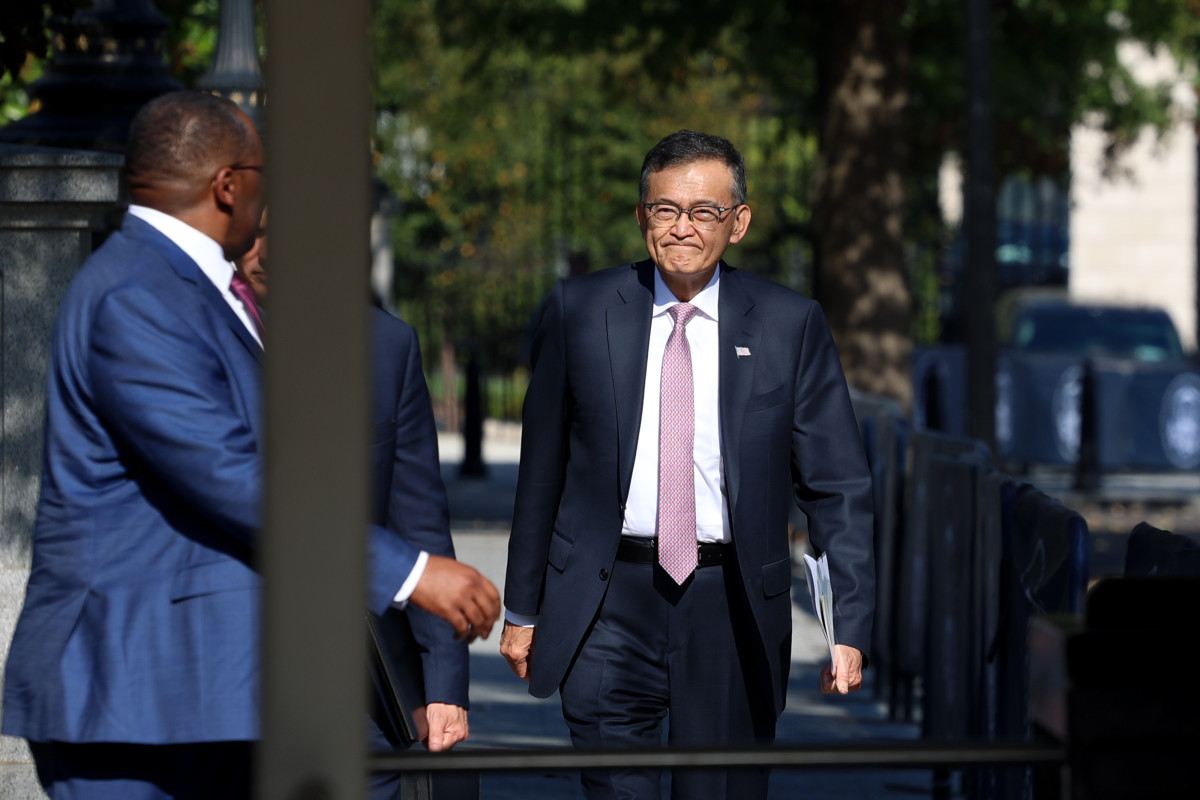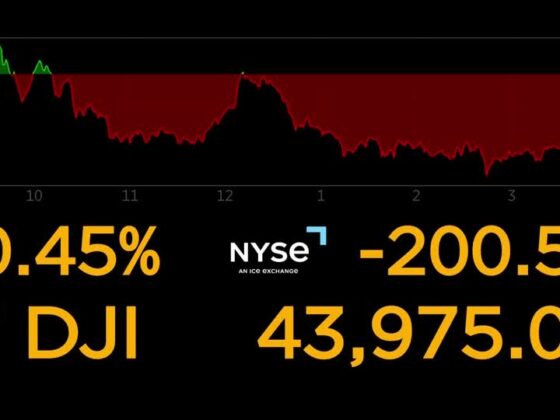On Thursday, August 7, 2025, President Donald Trump called out Intel CEO Lip-Bu Tan on his social media platform, Truth Social, posting, “The CEO of INTEL is highly CONFLICTED and must resign, immediately.”
Chipmaker Intel has, for the last several years, been struggling to tread the increasingly choppy waters of the semiconductor industry in the age of AI. In November 2024, Intel was dropped from the Dow Jones Industrial Average, one of the most widely followed stock indexes, and replaced by competitor Nvidia. The following month, Pat Gelsinger, who had worked at Intel on and off since he was 18, stepped down as the company’s CEO under pressure from the company’s board.
Just a few months later, company newcomer Lip-Bu Tan would take up the helm, and it wouldn’t be long before he found himself the target of the Trump administration for his ties to China. Trump’s callout came after Republican senator Tom Cotton criticized the CEO for his investments in Chinese businesses via Tan’s investment company, citing “concern about the security and integrity of Intel's operations.”
Despite Trump’s previous insistence that Tan resign, the fervor over the issue seems to have cooled somewhat after Tan met with the president on Monday, August 11. After the meeting, Trump posted, “I met with Mr. Lip-Bu Tan, of Intel, along with Secretary of Commerce, Howard Lutnick, and Secretary of the Treasury, Scott Bessent. The meeting was a very interesting one. His success and rise is an amazing story. Mr. Tan and my Cabinet members are going to spend time together, and bring suggestions to me during the next week.”
Before joining Intel as CEO, Lip-Bu Tan didn’t have a particularly high profile outside of venture capital circles. Now that he’s been making headlines for his presidential callout and subsequent White House visit, many are wondering how much the investor-turned-tech-CEO is worth, how he’ll be making as Intel’s new CEO, and how he made his money.
What is Intel CEO Lip-Bu Tan’s net worth in 2025?
Interestingly, estimates of Lip-Bu-Tan’s wealth vary considerably, with some sources, like Quiver Quantitative, pegging his net worth as high as $758.9 million and other sources reporting numbers as low as $550 million.
Tan owns an estimated 1.4 million shares of Cadence Design Systems, which he previously served as CEO and chairman of. Cadence is a public company that creates software for the semiconductor industry. It trades on the Nasdaq, and as of August 11, Tan’s estimated holdings would be worth around $489 million.
Related: Pat Gelsinger's net worth: The former CEO’s wealth after Intel
Walden International, the private venture capital firm Tan is chairman of, managed $5 billion worth of investments as of 2024, according to The Economic Times. An April 2025 Reuters investigation found that through Walden and other investment interests, Tan had ostensible control over 40 Chinese companies, some with ties to the country’s military—it was likely this report that sparked Senator Cotton’s criticisms of Tan prior to the president’s Truth Social callout.
According to the Reuters article, a source told the publication that Tan had since divested from his positions in Chinese companies, but Reuters was unable to confirm the veracity or extent of these divestitures.
More net worth:
- JD Vance’s net worth: From venture capital to senator to VP
- Scott Bessent’s net worth: Trump's Treasury Secretary's wealth in 2025
- Bill Gates’ net worth in 2025: How much has he made (& given away)?
What is Lip-Bu Tan’s salary as Intel CEO?
Tan’s compensation package as Intel CEO includes a guaranteed annual base salary of $1 million, a possible 200% performance-based bonus of $2 million, and $66 million worth of long-term stock and option awards.
Tan’s base salary is lower than that of his predecessor, Pat Gelsinger, who received $1.25 million in pay in 2024 before bonuses and awards.
As part of his hiring process, Tan also agreed to purchase $25 million worth of Intel stock during his first month on the job. He made the entire purchase on March 21, adding 1,043,406 shares of the chipmaker to his personal portfolio, according to an SEC filing.
Related: Mike Lindell’s net worth after defamation verdict
How did Lip-Bu Tan make his money? His venture capital career explained
Born in Malaysia in 1959, Tan attended university in Singapore, studying physics before moving to the United States to pursue his master's degree in nuclear engineering at MIT. After briefly pursuing a doctorate in the same field, Tan switched gears and instead secured a second master’s degree at the University of San Francisco—this time in business administration.
After graduating, Tan launched his venture capital firm, Walden International, with $20 million at the age of 28. By focusing on investing in growing, private tech companies—many of them based in Asia—and helping them go public, Walden produced outsized returns, and by 2001, the VC firm’s initial $20 million had turned into $2 billion. At the time, Forbes dubbed Tan the “pioneer of Asian VC,” and noted that “he clearly has a knack for picking winners.”
Related: Michael Dell’s net worth & salary as Dell CEO
In 2004, Tan was elected to the board of Cadence Design Systems. He later became the company’s interim CEO in 2008 before assuming the role officially in 2009. As CEO, Tan helped the company make strategic acquisitions and grow its value significantly, accumulating Cadence shares along the way. As mentioned above, he reportedly retains 1.4 million of the company’s shares today, accounting for much of his estimated net worth. Tan resigned as CEO in 2021 but remained on the company’s board until 2023.
Tan’s investment success with Walden continued, but that same year, a House committee approached him with concerns about some of his company’s Chinese investments, mentioning that some of the companies Walden owned stakes in had been “blacklisted for involvement in human-rights abuses or Chinese military uses” by the U.S. Commerce Department.
Concern over Tan’s ties to Chinese tech companies followed him into his next role as CEO of Intel, eventually leading him to the White House.
What are Lip-Bu Tan’s plans for Intel?
In late July, Tan sent a message to Intel employees detailing a three-pronged plan to get the company back onto solid financial and competitive footing. The overarching themes are …
- Become a more financially disciplined foundry
- Revitalize the Intel x86 ecosystem
- Refine our AI strategy
Related: Scott Galloway’s net worth: The Prof G host's wealth & income in 2025













